Petrovietnam's key comments
The draft Electricity Law (amended) consists of 9 chapters with 130 articles. Updating the progress, the Working Group on comments on the draft Electricity Law (amended) of the Group informs about the key comments of Petrovietnam up to now.
In Chapter I of General Regulations, Petrovietnam commented on: Mechanism to encourage participation in the construction of natural gas and liquefied gas thermal power projects; mechanism to prioritize and mobilize domestic natural gas plants according to gas supply capacity and fuel constraints; mechanism to ensure long-term minimum mobilized output for gas plants; mechanism to transfer price and output of gas as input fuel.
For Chapter II, Power Development Planning and Power Project Investment, Petrovietnam's comments include: Progress of power source projects; mechanism for handling power source projects that are behind schedule; authority to decide and designate emergency power projects and works; priority regulations for investment in emergency power projects and works.
Chapter III: Development of renewable energy and new energy, Petrovietnam comments on: Policy mechanisms for planning, exploration, survey, investment assignment, approval of Pre-FS/FS, investment implementation of offshore wind power projects; mechanism for operating and mobilizing offshore wind power plants; mechanism for assigning pilot implementation of offshore wind power projects.
In addition to the accepted comments, there are still many comments from Petrovietnam that have not been accepted by the drafting agency, regarding the pricing mechanism, specific mechanisms for offshore wind power, issues related to the marine economic portfolio, legalizing cooperation between state-owned economic groups and foreign investors, etc.
Chairing the meeting, Chairman of the Board of Directors of Petrovietnam Le Manh Hung requested that the recommendations should be general, focusing on practical difficulties in the oil and gas electricity sector, to ensure thorough solutions. At the same time, the suggestions should also be from the perspective of the National Assembly and the Ministry of Industry and Trade to ensure harmonization of goals towards the majority of affected subjects.
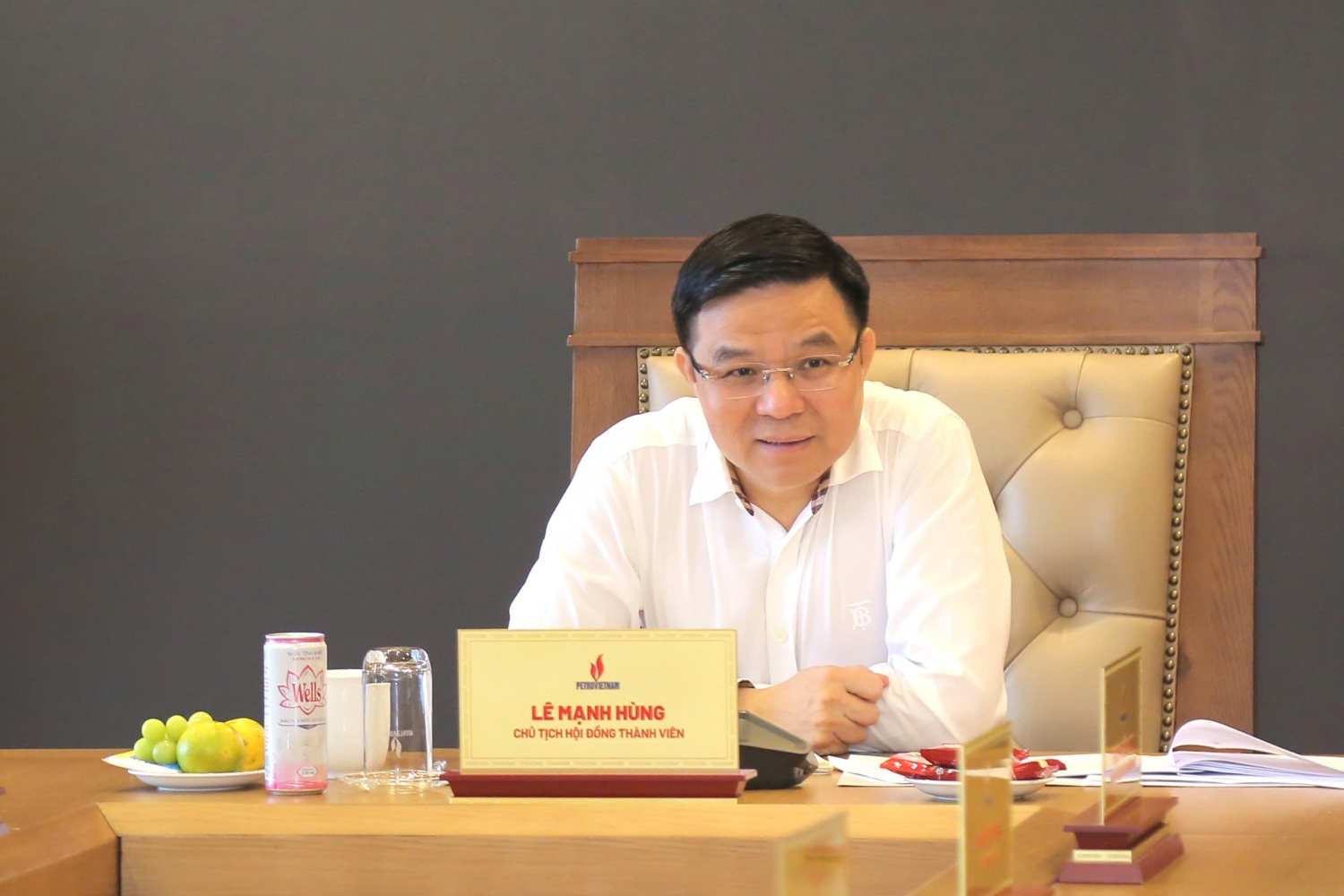 Petrovietnam Chairman of the Board of Directors Le Manh Hung gives directions on the Group's contribution to the Draft Law on Electricity (amended)
Petrovietnam Chairman of the Board of Directors Le Manh Hung gives directions on the Group's contribution to the Draft Law on Electricity (amended) There are still many problems in power development units.
At the meeting, Mr. Le Nhu Linh, General Director of PetroVietnam Power Corporation ( PV Power ) said that the latest draft has incorporated many comments from Petrovietnam. However, PV Power found that there are still many problems and unclear implementation.
Specifically, the selection of investors, Power Plan VIII was approved in May 2023, but since then, no locality has been able to select an investor. Based on plans and planning to finalize the project deadline, without considering actual progress, will cause difficulties for investors in meeting the implementation progress.
“The draft law only allows 12 months of delay, which is very difficult and there is a risk that no one will dare to do it because it cannot meet the time regulations. Because the project progress also depends on capital arrangement and handling procedures with localities. Regarding bidding, localities still have many concerns between open bidding or just on the selection list,” Mr. Le Nhu Linh raised the issue.
Another problem mentioned by PV Power is that the capacity stated in the plan is fixed, but in reality, science and technology are constantly advancing, and if there is a difference in reality, the plan will have to be re-established, which takes a lot of time. Therefore, this unit stated that the capacity number cannot be "fixed" in the plan so that investors can be proactive.
Domestic electricity production must be guaranteed to consume, which is the way the whole world does, but currently the guarantee is assigned to power plants. PV Power is implementing the guarantee for 2 plants, the unit believes that this task should be transferred to the National Power System Control Center (A0) and the Electricity Regulatory Authority (Ministry of Industry and Trade) to ensure consumption.
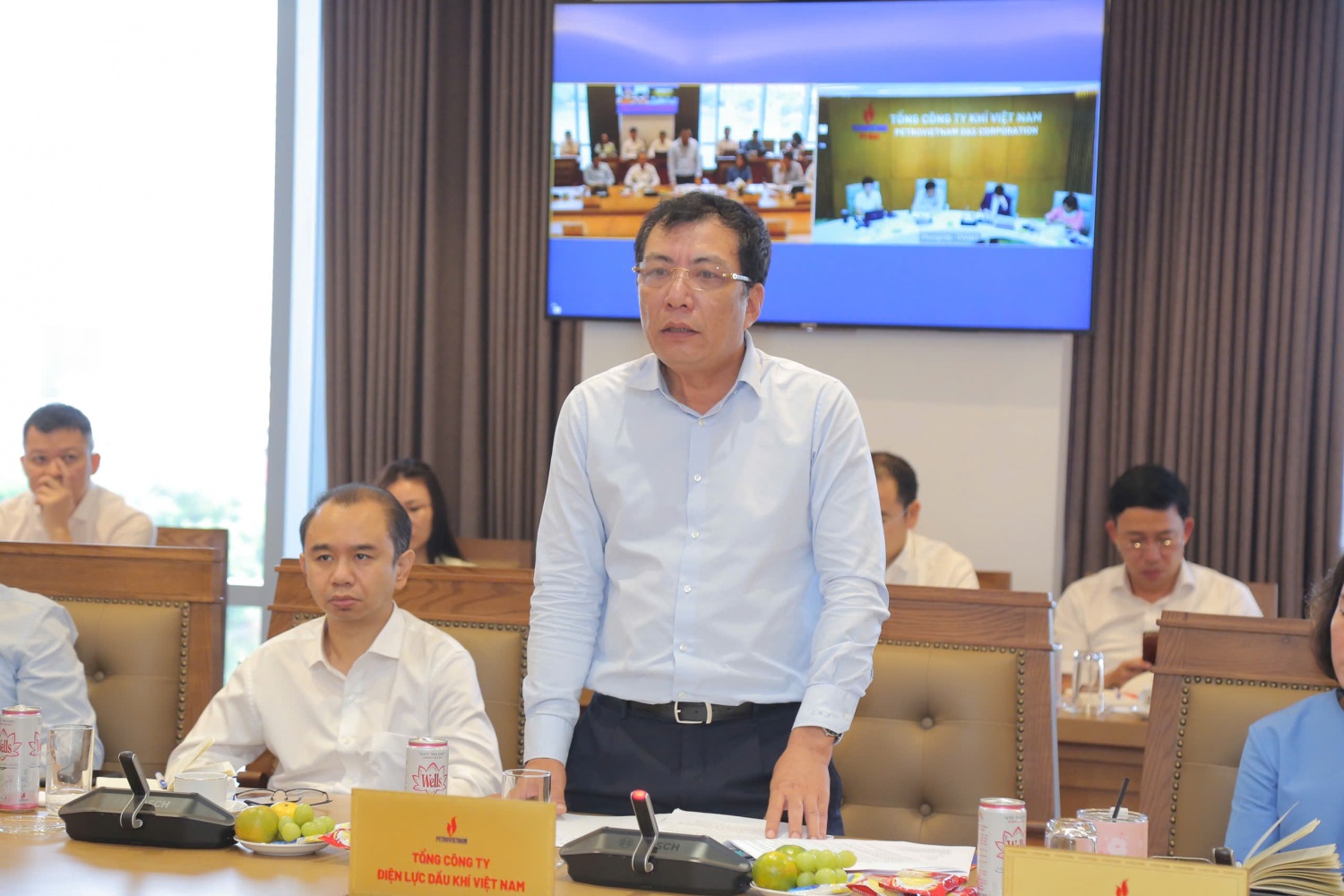 Mr. Le Nhu Linh, General Director of PV Power, gave his comments on the draft Law on Electricity (amended).
Mr. Le Nhu Linh, General Director of PV Power, gave his comments on the draft Law on Electricity (amended). From another perspective, Mr. Pham Van Phong, General Director of PetroVietnam Gas Corporation ( PV GAS ) said that PV GAS's operations are affected by three groups of policies: Regulations on the construction of central LNG warehouses have been removed from the latest draft; new energy development does not mention hydrogen and ammonia but only mentions them in general, which will cause difficulties for future development; fees are a complicated issue, but are not clearly mentioned. When drafting the Law on Prices (amended), the Ministry of Finance also omitted this fee issue, so the story of fee construction is quite vague, without any legal basis.
Mr. Tran Ho Bac, Deputy General Director of Vietnam Oil and Gas Technical Services Corporation ( PTSC ) said that up to now, 8/21 issues contributed by the unit to the Draft Law have been accepted. If the remaining issues are not legalized, the implementation of offshore wind power projects will encounter many difficulties.
“Offshore wind power construction in the world has 3 phases: pilot, conditional competition, perfect competition. Vietnam is in the pilot phase, it will take 30 more years to reach the stage of perfect competition. Therefore, the State must guarantee the product for investors to dare to do it,” analyzed a representative of PTSC.
This unit recommends that the draft Law open and decentralize decision-making power to the Government and the Prime Minister to have flexibility and unify land allocation, sea allocation and related policy mechanisms for the pilot project. Also according to PTSC, the issue of basic survey and investigation, according to Conclusion 76-KL/TW, is assigned to Petrovietnam but an implementation mechanism is needed.
In addition, PTSC also recommended that the Drafting Team include in the draft Law a preferential mechanism for offshore wind power regarding fees and taxes. The mechanism for exporting offshore wind power abroad has clear regulations on selling prices according to market mechanisms.
In addition to opinions from production units, the Group's commercial sector believes that there should be a mechanism to adjust retail price regulations in the electricity purchase and sale policy to have a more flexible legal corridor for implementation.
Units in the field of oil and gas exploration and production (E&P) emphasized three policies that need to be clearly defined in the draft Law: Transferring prices and output across the entire chain; maximizing domestic resources to ensure maximum national revenue instead of the concept of "base running" which the Ministry of Industry and Trade considers sensitive; and prioritizing policies for synchronous development of the LNG-related electricity chain.
Prioritizing recommendations for offshore wind and gas power
Regarding the latest draft of the Electricity Law (amended), Mr. Pham Tuan Anh, Member of the Board of Directors of Petrovietnam, said: “The issues that need to be focused on are investment sources for development, transmission and distribution, and the electricity market. In my opinion, the draft Law has not met these requirements. The draft Law and the Electricity Plan VIII are at odds; the requirement to develop a transmission grid suitable for energy types has not been clearly identified; the horizontal transfer regulations on output, price, and retail electricity price thinking have not changed.”
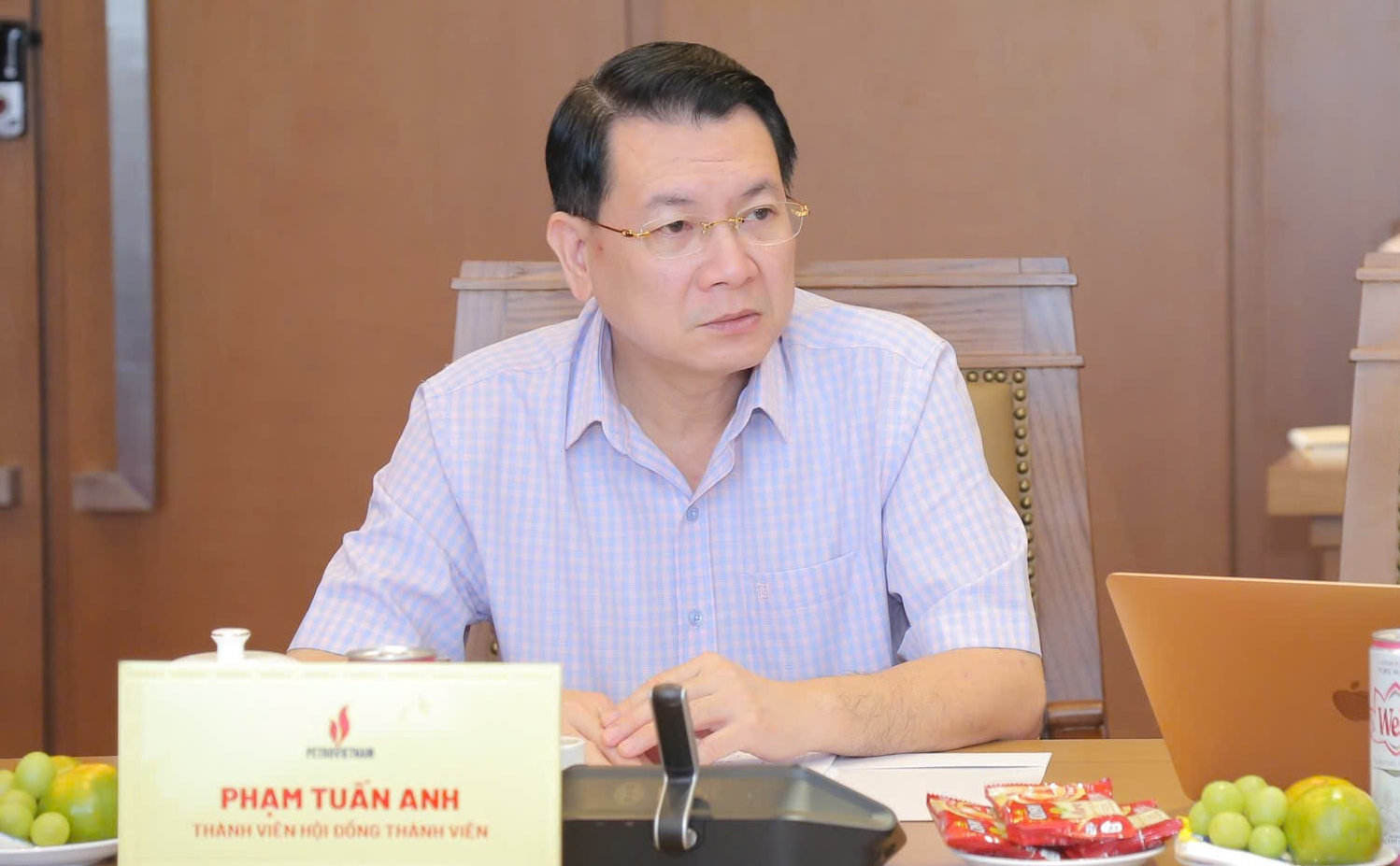 Petrovietnam Board Member Pham Tuan Anh gives his opinion
Petrovietnam Board Member Pham Tuan Anh gives his opinion Therefore, Mr. Tuan Anh said that it is necessary to have a written report to the Prime Minister and the Ministry of Industry and Trade as a source development unit, because the draft Law does not guarantee investment in source development, related to ensuring energy security.
Petrovietnam Chairman of the Board of Directors Le Manh Hung emphasized that Petrovietnam is shifting to an industrial-energy group model, not only operating in the oil and gas sector, so the draft Electricity Law (amended) has a great impact on the production and business activities of the entire Group.
Chairman Le Manh Hung requested units and departments to focus on providing comments on the draft Electricity Law (amended). Experience from providing comments on the amendment of the 2022 Petroleum Law shows that this is a difficult and complicated issue. Therefore, the Chairman of the Board of Directors of Petrovietnam requested the Group's Working Group to provide comments on the draft Law in the direction of clearly stating the difficulties and obstacles that are being identified from reality, thereby condensing proposals and recommendations to the Ministry of Industry and Trade's Drafting Team, prioritizing proposals that are decisive, focused, and directly affect the projects being implemented.
The commenting work needs to carefully and comprehensively evaluate the draft Law, the points that have been accepted, and the points that are still stuck. Report the difficulties that the draft Law has not fully accepted to resolve, because the investment value of the projects is very large, the risks are high and the time is long.
“Review the opinions of member units: PV Power, PV GAS, PTSC, PVPGB. For gas-fired electricity, there needs to be a clear mindset about baseload electricity and the price-transfer mechanism; for offshore wind power, there needs to be a pilot mechanism and specific incentive policies; and clear regulations on the price mechanism,” Chairman Le Manh Hung emphasized.
Regarding progress, the Ministry of Industry and Trade requested completion by September 20. The Chairman of the Board of Directors of Petrovietnam assigned the Group to receive and fully synthesize recommendations and comments to send to the Government and the Ministry of Industry and Trade by September 18.
PT - HA



![[Photo] National conference to disseminate and implement Resolution No. 66-NQ/TW and Resolution No. 68-NQ/TW of the Politburo](https://vphoto.vietnam.vn/thumb/1200x675/vietnam/resource/IMAGE/2025/5/18/adf666b9303a4213998b395b05234b6a)

![[Photo] More than 17,000 candidates participate in the 2025 SPT Competency Assessment Test of Hanoi National University of Education](https://vphoto.vietnam.vn/thumb/1200x675/vietnam/resource/IMAGE/2025/5/17/e538d9a1636c407cbb211b314e6303fd)

![[Photo] General Secretary To Lam visits exhibition of achievements in private economic development](https://vphoto.vietnam.vn/thumb/1200x675/vietnam/resource/IMAGE/2025/5/18/1809dc545f214a86911fe2d2d0fde2e8)

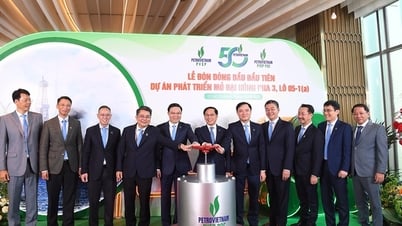



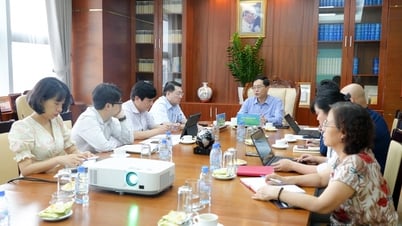
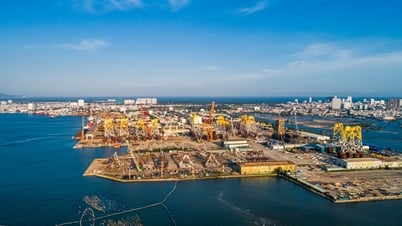
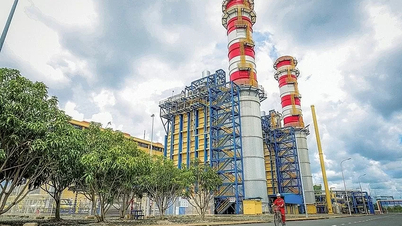

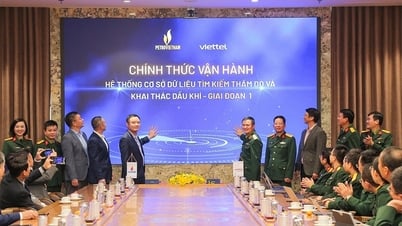

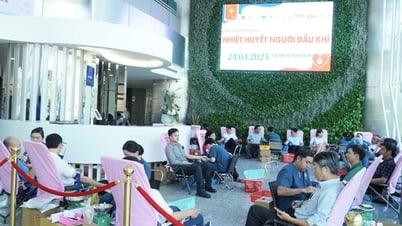

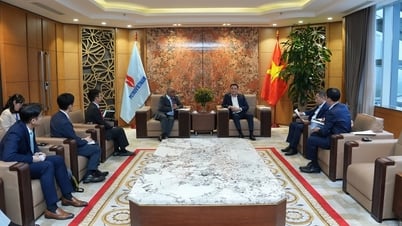
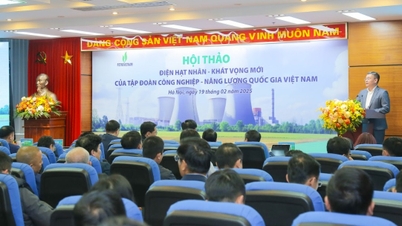

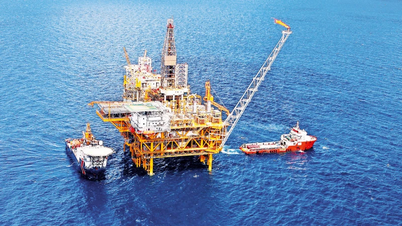





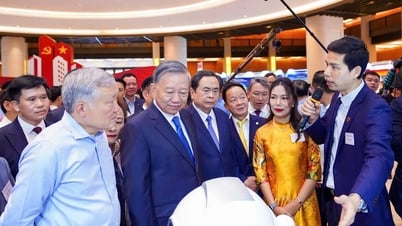


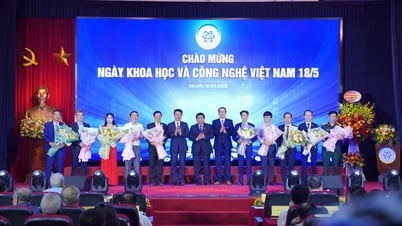


![[Photo] Prime Minister Pham Minh Chinh chairs meeting on science and technology development](https://vphoto.vietnam.vn/thumb/1200x675/vietnam/resource/IMAGE/2025/5/17/ae80dd74c384439789b12013c738a045)













































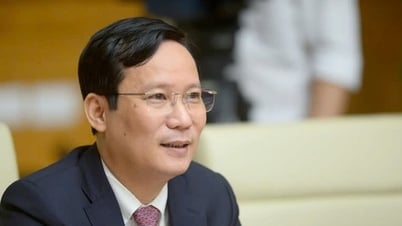


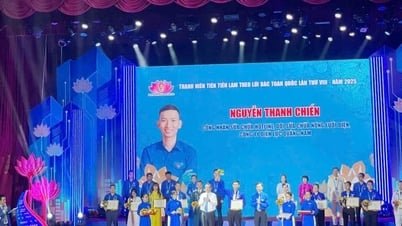
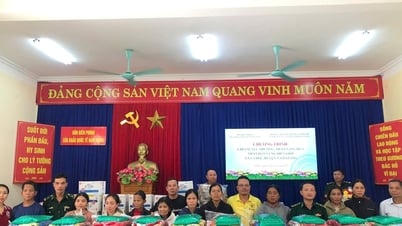
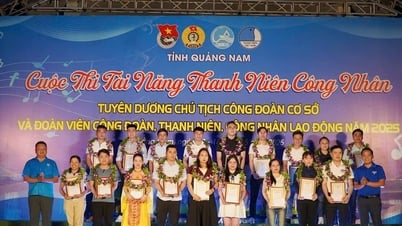









Comment (0)